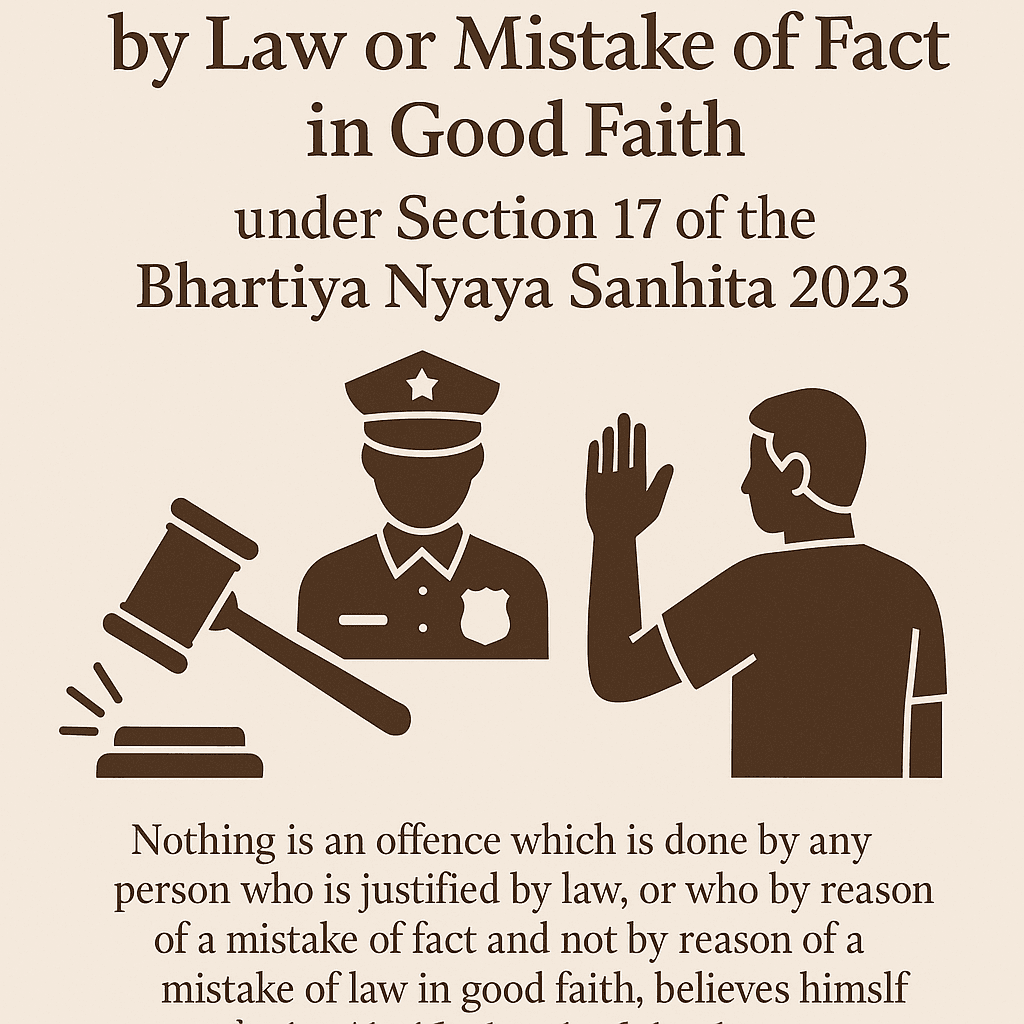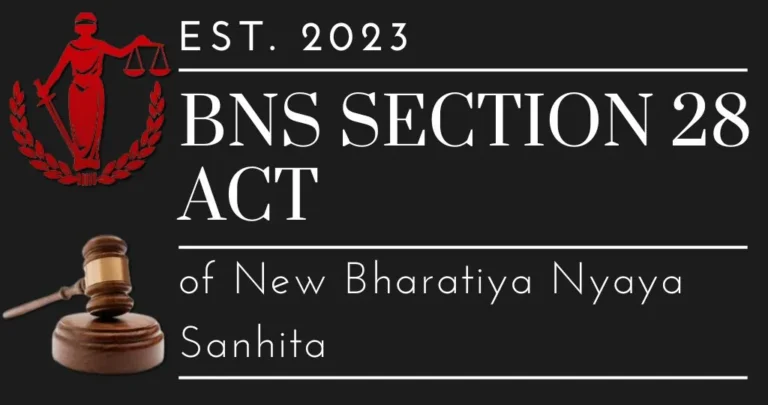
Protection for Actions Justified by Law or Mistake of Fact in Good Faith under Section 17 of the Bhartiya Nyaya Sanhita 2023
Introduction
Section 17 of the Bhartiya Nyaya Sanhita (BNS) 2023 gives individuals who commit acts either justified under law or committed under a delusion as to fact, the protection of the law if they act in good faith. It protects people from being unjustly punished for having acted in good faith based on their perception of the situation
Understanding Section 17
In accordance with this provision, an act is not an offense if a person is legally entitled to do it or if he believed in good faith that he had the right to do it by virtue of a mistaken view as to the state of facts. This protection is, however, not available for errors in relation to the law. The law assumes that persons know the law, but acknowledges that good faith mistakes as to fact are possible.
For example, a security guard might stop and detain an individual whom he truly thinks is a thief due to their suspicious actions. It is later discovered that the person was the owner of the object they were carrying. As the guard acted in good faith under a mistaken belief of fact, he would not be criminally liable under this provision.
For More Updates & Regular Notes Join Our Whats App Group (https://chat.whatsapp.com/DkucckgAEJbCtXwXr2yIt0) and Telegram Group ( https://t.me/legalmaestroeducators ) contact@legalmaestros.com.
For More Updates & Regular Notes Join Our Whats App Group (https://chat.whatsapp.com/DkucckgAEJbCtXwXr2yIt0) and Telegram Group ( https://t.me/legalmaestroeducators )
Illustration
Suppose a police officer arrests an individual for theft based on an eyewitness account. It later emerges that the alleged thief was the owner of the item in question. Under Section 17, since the officer made the arrest in good faith, believing he had a valid report, he is shielded.
In the same way, suppose a hunter catches sight of someone walking in the bushes and, thinking that he is seeing an animal, fires his rifle and injures another person by accident. If the hunter truly believed that he was shooting an animal and had no intention of harming a human being, his action can be excused under this section.
Key Elements of Section 17
The law understands that individuals occasionally act on false assumptions of fact. But in order to receive protection under this section, the actions of the person must be done in good faith. A person who makes a conscious abuse of this provision to cover up wrongful acts cannot claim immunity. For instance, if a police officer arrests a person without reason, with knowledge that the facts do not justify the arrest, he cannot avail himself of Section 17 protection.
There is also a sharp line dividing a mistake of fact from a mistake of law. A mistake of fact occurs when an individual misconstrues a situation through what he observes or hears, while a mistake of law takes place when a person does not know the laws regulating his behavior. Section 17 only safeguards those who act in good faith based on a mistake of fact, but not those who act due to ignorance of law. ## **Legal Precedent**
In the case of **State of Andhra Pradesh v. N.
Venugopal**, police officers arrested a person suspected of receiving stolen property and broke into his house. A few days later, the individual was discovered dead in police custody. The officers had argued that they were legally justified in what they did by virtue of a court order. However, the Supreme Court determined that they were not legally justified because there was no cogent nexus between their actions and any legal provision. The case illustrates the need to act within the parameters of the law as well as ensuring that action is taken on the basis of actual belief in legality. ## **Conclusion** Section 17 of the Bhartiya Nyaya Sanhita 2023 provides that persons acting on the basis of legal justification or reasonable mistake of fact in good faith shall not be unjustly punished.
It safeguards police officers, security personnel, and common citizens who could be placed in a position where they are forced to act swiftly on the basis of information available to them.
But this protection does not extend to those who are negligent or who abuse the law for their own benefit. By balancing legal protection with accountability, this provision ensures that there is fairness in the justice system.






